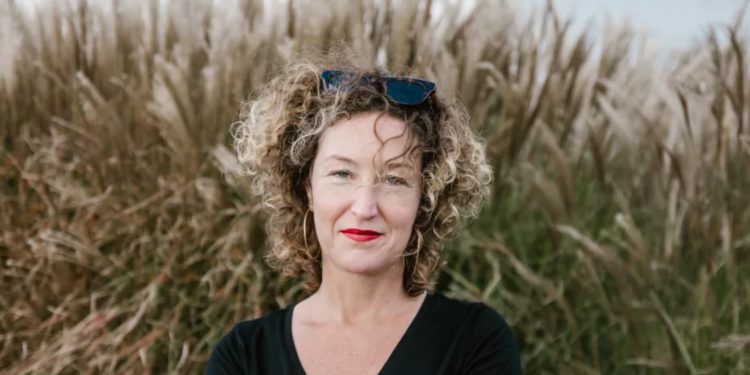Agrifood needs collaboration to overcome its inherent dysfunction – but how can this be done while allowing competition to thrive?
Marieke de Ruyter de Wildt, founder of Strike Two, says, by applying blockchain. It demands the collaboration that’s been absent in agrifood – leading to inefficiencies and irresponsible practices. At the same time it allows inter-operability between protected, proprietorial data sets.
“It’s a technology that encompasses different units in a system, to create trust and transparency,” she explains.
It inspired the Strike Two four-day summit at which roadmaps for solving problems in agrifood – usually with blockchain – are hashed out.
This year, it’s fifth outing, Strike Two hosts nine “tracks” or problem-solving exercises, aimed at working up plans for better transparency, generally, in food chain blind spots.
“Officially one in ten products globally in a retail shop are fraudulent”
The problems being tackled range across soy, “donut” or sustainable farming, cacao, coffee, shrimps, smallholders in developing countries, regional resilient food systems – or shorter supply chains for cities – and eggs.
Each team will be exploring how to make the supply chain more transparent for consumers, more profitable for farmers, and better managed.
Blockchain is an immutable, distributed ledger accessed by anyone, anywhere, anytime. Each block in the chain stores transaction information and each block has its own digital signature, known as a hash, so each block is uniquely identifiable.
“Strike Two was born out of frustration,” admits Marieke de Ruyter de Wildt. “I wondered why people in technology don’t understand food and why people in food don’t understand technology.
“The benefits of blockchain are so obvious to me. One area in which it would excel and should really be taken up more seriously is food safety and fraud. Officially one in ten products globally in a retail shop are fraudulent.
“The C-suite needs to know that blockchain is here and it’s heating up”
“In the end I want to see blockchain support sustainability, make our food system more resilient. The challenges that we’re facing are severe. We have some real environmental, even psychological challenges.
“The digital divide is increasing. If I look at my country The Netherlands where we could have human advancement that would be more egalitarian, more smart, more intelligent, a lot of people feel left out.”
She points to the collaboration of Cargill, ADM, Bunge and Louis Dreyfuss along with other importers normally in competition, who worked on Covantis, a blockchain driven platform for commodities traders that launched earlier this year. It digitises trades, making them far more efficient.
“The C-suite needs to know that blockchain is here and it’s heating up. You’d better be part of it now or you will regret it. Stop looking at it and thinking about it, get your hands dirty.
“You need to start with something very simple. People tend to start with complexity and that’s never a good idea.
“Blockchain requires collaboration. You get much stronger alignment, much quicker implementation”
“In the Netherlands we are too fanatic about wanting everybody at the table from the start, then you get stuck in discussions. Get something going with the least possible number of participants and show how it works rather than talk about how it could work.
“Blockchain requires collaboration. So you cannot do it with only the tech part of a company, or only the marketing part. That is its power. You get much stronger alignment, much quicker implementation.
“It really depends on good leadership and visionaries to make the argument as to why it’s a good idea and convince the others.”
She worked with two competing juice bottlers to get JuicyChain started within months – a traceability platform for sustainable juice.
It is managed by a non-profit foundation including the competitors Refresco and Eckes Granini, and it’s supported by IDH Sustainable Trade Initiative.
“Cargill, De Heus and Nutreco have worked at Strike Two together on soy tracebability”
“We did the whole development in three months,” she explains. “That’s how quickly stuff can happen.
“It wasn’t an obvious thing to get it done and dusted. It took a visionary at C-level in each of these companies to agree that they had to do this with their biggest competitor.”
Cargill, De Heus and Nutreco are also normally competitors but previously, along with Rainforest Alliance, they have worked at Strike Two together on soy tracebability, a subject being addressed again this year.
Retailers are under increasing pressure to better identify the soy that goes into animal feed and therefore the meat that’s retailed, so consumers are genuinely able to choose products that aren’t associated with deforestation. The complexity of the soy supply chain has made this difficult, to date.
“The event is followed up by the opportunity in December to pitch for funding”
“Agrifood businesses find it very difficult to understand the beauty of technology,” says Marieke de Ruyter de Wildt. She started by studying computer sciences at Wageningen University.
“The intrinsic tension between digitisation and food is that food has everything to do with soils, realness, and digitisation has everything to do with things that are non tangible.
“We realised we need a place where people can touch technology, ask the questions of many different experts, and get a less biased view on what the value of technology really is.”
Those experts range in background from CGIAR, the World Bank, FAO, World Food Programme and Oracle to the World Business Council for Sustainable Development. The event is followed up by the opportunity in December to pitch for funding in a so-called Shark Tank.
Strike Two runs in Amsterdam from November 1st to 4th as a hybrid of live, in-person and online participation. Strike Two spun out from The New Fork.























